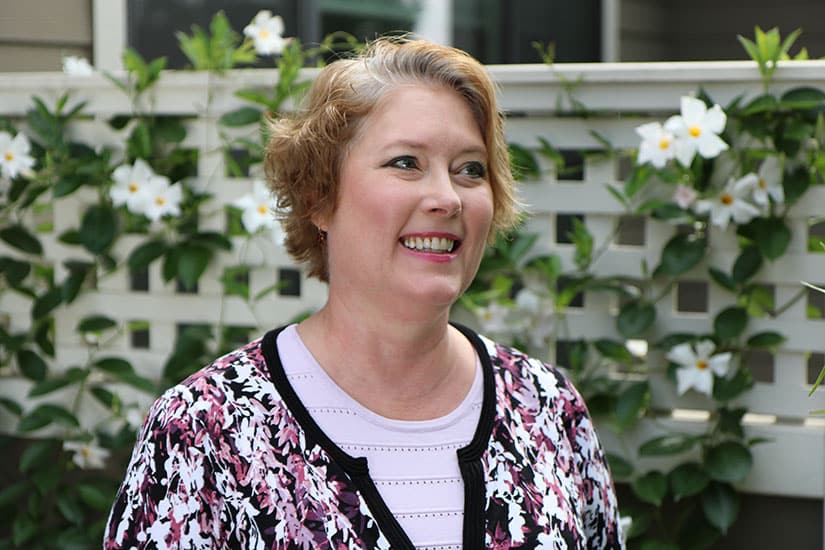|
Getting your Trinity Audio player ready...
|
Human capital is the US economy’s most valuable asset. That’s not just a positive sentiment from the HR department; it’s a fact. A study by the Korn Ferry Institute shows human capital out-values physical capital nearly four to one. The institute, however, projects that a global shortage of talent will cost the world economy $8.5 trillion in unrealized revenue, and the United States is not immune.
Lisa Perez sees this issue as not only a problem but also an opportunity to help. Her own state, Minnesota, is facing its own talent shortage head-on. In fact, a 2011 survey by the Minnesota Department of Employment and Economic Development found 47 percent of the state’s businesses had unfilled jobs due to a lack of qualified applicants.

“It’s a huge problem that we face in the state of Minnesota,” Perez says. “Our leaders, both in the public and private sectors, are very clear that we have a talent shortage crisis. By the year 2020, we are estimated to be short 250,000 workers in our region.”
With more than twenty-five years of corporate human resources expertise, Perez knows the challenges of talent acquisition firsthand. She saw talent shortages in the food service industry in her most recent role as vice president of talent management at Buffalo Wild Wings. As she looked for solutions to this very real talent crisis, she turned to her local community for inspiration, and one staggering fact inspired an aha moment for Perez: Minnesota accepts more refugees than any other state. With just 2 percent of the nation’s population, the state is home to 13 percent of the country’s refugees. And so, the idea for the Prosperity Ready was born.
Prosperity Ready is a nonprofit with the mission to develop the vast potential of immigrants to help overcome the talent shortage crisis and enable organizations to reflect the communities in which they serve. Subject-matter experts with the organization focus on bridging the gaps in the employment life cycle for immigrant talent. This life cycle addresses everything from sourcing talent to training and development to retention. Although the organization is still seeking additional funding through donations, Prosperity Ready is now a sponsored project of the Social Good Fund, a nonprofit, full-service fiscal sponsor.
“We are excited to sponsor Prosperity Ready and look forward to seeing their vision and mission realized,” says Oliver Hack, executive director of the Social Good Fund.
That vision and mission is to support the full continuum of the employment life cycle to build a skilled, robust, and reliable talent pipeline. With these goals in mind, Perez has reengineered the employment life cycle for immigrant populations.
“Rebuilding a life cycle that addresses specific needs of the immigrant population is not something that is being done in a holistic fashion by subject-matter experts,” Perez says.
Perez’s expertise will be vital throughout the entire life cycle because she knows how important each step of the process is from recruitment to onboarding and continuing development. Over the course of her career, she’s held high-level HR roles at many large corporations across many industries, including Accenture, GE Healthcare, and Kohl’s. In those positions, she saw the how much high turnover rates could impact companies, and she learned to address those issues through everything from providing positive leadership to implementing company-wide HR tools. Now, as CEO and founder of Prosperity Ready, she will be pivoting her skills to a new, more niche mission.
“This whole process is where I’ve lived for the past twenty-five plus years,” Perez says. “It’s really about aligning talent and sourcing to connect corporations with settlement agencies. It’s the same steps as a traditional life cycle; just different techniques.”
Essentially, Prosperity Ready will partner with nonprofits to find and develop potential talent and with corporate partners to ensure employers are equipped to receive diverse, ready-now talent.
On the nonprofit side, Perez is looking to partner with immigrant and settlement agencies to connect with immigrant populations. Additionally, she would like to work with nonprofits that are already established in providing services to these communities. She points to organizations like Comunidades Latinas Unidas en Servicio (CLUES)—which has been working to empower and engage the Twin Cities’ Latino population since 1981—as vital resources in this space.
“We provide holistic, family-centric training opportunities in the community, thereby creating new career pathways for Latinos,” says Ann Meyers, CLUES’ associate director of employment and career development. “It is important that employers look to the talent our programs are creating for their staffing needs and make solid commitments to hiring newly trained, qualified applicants.”
While CLUES can help to prepare immigrant populations for the workforce, Prosperity Ready’s team of subject-matter experts can provide training for corporate partners on how to create culture shifts to be able to hire and retain the diverse workforce.
On the corporate partner side, the Prosperity Ready will work with large corporations to connect them with talent and educate employees on onboarding, developing, and retaining immigrant talent. Initially, Perez says the nonprofit will be looking specifically at addressing the gaps in the hospitality, retail, and restaurant industries, but she hopes to eventually branch out to manufacturing. And the Minneapolis-St. Paul metropolitan area is rife with potential partners. The area is home to Target, Dairy Queen, Coffee and Bagels, Best Buy, Famous Dave’s, and many other corporate headquarters that are a part of key industries for Prosperity Ready.
“This is something that we have to figure out from a social perspective, a moral perspective, and a business perspective.”
In connecting corporate partners to immigrant talent, Perez sees many benefits. First, she sees a wealth of potential in immigrant talent. She says many immigrants arrive in this country with many skills, some that are innate traits, such as tenacity and loyalty, that many argue cannot be developed in training programs. The next is that connecting immigrant talent will bolster many companies’ diversity and inclusion initiatives.
Addressing this talent shortage head-on by tapping into the immigrant and refugee talent pipeline has become a passion of Perez’s for many reasons. It will help the local business community and, more importantly, Perez sees this as a way to give back to underserved communities, and giving back has always been important to her.
“I think it’s always been part of my DNA to want to help those who are in need,” she says. “This is something that we have to figure out from a social perspective, a moral perspective, and a business perspective.”
Moreover, she is impassioned to help serve the local Latino population. Although Perez is not Hispanic, her husband is, her son is, and feels that her husband’s grandparents’ story of immigrating to the United States from Mexico is emblematic of what makes Minnesota such a remarkable community to serve.
“Our Latino community has been here since the 1900s,” Perez says. “When immigrants like my husband’s parents arrived in the Midwest, they built institutions for support. They created unions, churches, arts collectives—all to make sure that they have the support and infrastructure that they need to be successful. In addition to building institutions, settlement agencies have become a draw for immigrants and Latino immigrants. So, it’s become well known that people will get solid support here.”
With all these factors to inspire her, Perez is officially launching Prosperity Ready with a pilot program in 2019. The pilot will work with eighteen to twenty immigrants over the course of six months to assess the validity of her reengineered employment life cycle. But with her passion, HR expertise, the clear need for solutions to the talent crisis, and the innovate idea behind Prosperity Ready, Perez feels confident this ambitious endeavor will succeed.

